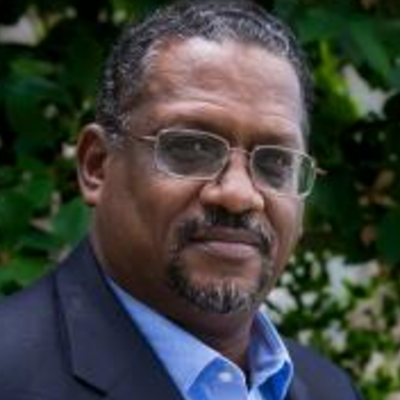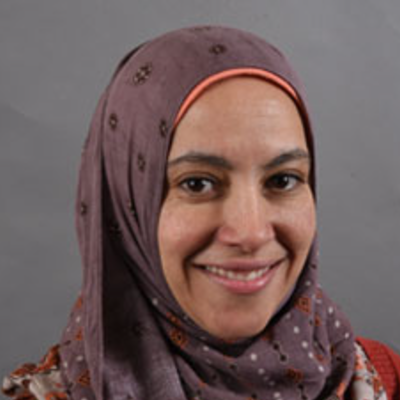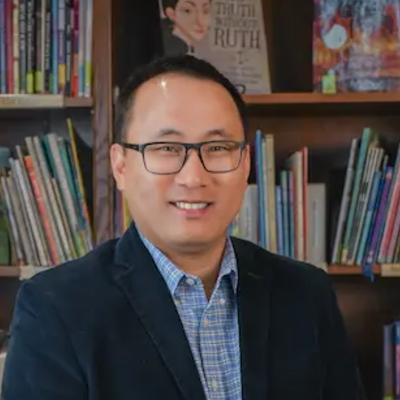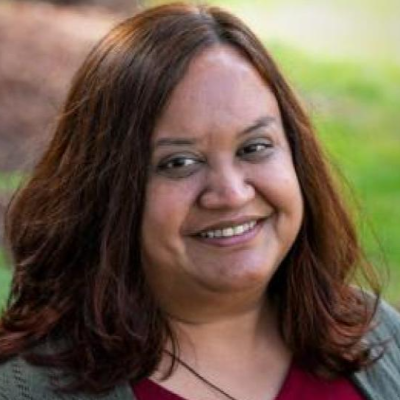How can our science improve lives?
To help explore how developmental science can be more effective in improving the diverse human experience, the invited theme for 2025 focuses on using Developmental Science for the Public Good. Keynote speakers and invited symposia/panels will highlight research and teaching that meaningfully impacts diverse communities. One focus will be on translating research for real-world use, ensuring that findings reach families, educators, and policymakers in accessible ways. Because improving communities involves engaging with communities from the beginning, the theme will also highlight community-engaged scholarship across the globe, underscoring ethical obligations in research, participatory action research, and the importance of amplifying youth voices. Speakers will highlight innovative methods, including applied research and intervention science, and will emphasize diversifying our curricula to make developmental research more inclusive and accessible.
Important Dates
Date |
Event |
|
August 20, 2025 |
Early Conference Registration Deadline |
|
September 22, 2025 |
Regular Conference Registration Deadline |
|
October 23, 2025 |
Diversity Science Initiative Writing Workshop |
|
October 24-26, 2025 |
Conference |
Schedule - 4 Days
23 Oct
Diversity Science Initiative Writing Workshop Preconference
24 Oct
Registration
Welcome
Keynote Address Stephen Russell
Stephen Russell
LGBTQ+ Youth and Schooling: Research for Policy and Practice
Coffee Break
Teaching Panel on Critical Pedagogies and Inclusive Evidence in Developmental Science: Locating Our 'Come from Place'
Critical Pedagogies and Inclusive Evidence in Developmental Science: Locating Our 'Come from Place'
Developmental science as a field is itself at a formative period of development, reconciling its history with dominant perspectives that often represented narrow samples or phenomena, and pushes toward more pluralistic, critically engaged approaches that reflect the realities of diverse communities. This roundtable symposium explores how our “come from place”—including our social identities, family roles, culture, institutional positions, and community connections—shapes the ways we teach, research, and apply developmental science. By centering our positionalities, we model an approach to developmental science that is inclusive, transformative, and responsive to the complexities of human development across varied and multilayered contexts.
Through dialogue with one another and with the audience, the panelists—Drs. Mona Abo-Zena, Nicholas Hartlep, Matthew Kim, and Meenal Rana will identify challenges and possibilities for teaching developmental science critically and for expanding the field’s boundaries. A central focus will be strategies to broaden the evidence base by incorporating marginalized voices and global perspectives, while also examining how power, culture, and institutions define what counts as “valid” knowledge.
Nicholas Hartlep
Community-Engaged Pedagogy for the Public Good
Meenal Rana
Community-Engaged Pedagogy for the Public Good
Symposium 1: Learning, Language, and Identity Development among Chinese Americans: Culturally Attuned, Person-Centered Methodological Approaches
Learning, Language, and Identity Development Among Chinese Americans: Culturally Attuned, Person-Centered Methodological Approaches
Yoko Yamamoto, Mona Abo-Zena
Chinese American Preschoolers’ Beliefs About Learning in Sociocultural Contexts: A Mixed-Method Study
Yoko Yamamoto, Jin Li
Voices of the Young: Exploring Child Agency in Heritage Language Socialization in Chinese American Families
Yiyang Guan
The Interplay of Ethnic-Racial Identity Process and Attitudinal Profiles in Youth with Chinese Heritage
Hua Luo
Symposium 2: Community-Engaged Approaches to Prevention Science for the Public Good
The PREVENT Alliance: Community-Engaged Approaches to Prevention Science for Public Good
Gabrielle Cochran, Jakob Hester, Kylee Pipgrass, Mary MacDonald, Rebecca Bathlette, Melinda Ickes, Rachael Corrone
Evaluation From the Ground Up: Community Led Assessment
Jakob Hester, Gabrielle Cochran, Melinda Ickes
Co-Design in Action - Empowering Youth for Community Prevention
Kylee Pipgrass, Rebecca Bathlette, Melinda Ickes, Rachael Corrone
From Research to Resource: Translating Findings Beyond Academia
Mary MacDonald, Gabrielle Cochran, Melinda Ickes
Emerging Scholars Networking Lunch With Mentors
Invited Roundtable: Reclaiming Our Power: Advancing the Diversity Science Initiative Through Collaboration, Solidarity, and Research Continuity
Organized by Drs. Meenal Rana and Deborah Johnson
Faciliated by Dr. Yoko Yamamoto
This roundtable symposium aligns with the conference theme by offering a generative space for scholars to strategize around sustaining research productivity and voice amidst the growing challenges faced by Diversity Science scholars. It emphasizes cross-group coalition-building, research continuity, and mutual empowerment—all central high quality science forto the public good science.
In an era of escalating challenges to equity-driven research, our strongest asset is one another and our common interestseach other. This roundtable convenes leading scholars to collaboratively strategize how the Diversity Science Initiative (DSI) and its broader interdisciplinary networks can sustain research productivity, coalition-building, and public impact. Together with audience participants, we will reflect on what it means to “circle the wagons” around shared values and scientific commitments, and to protect the spaces where our voices matter most. This session seeks to reclaim a collective sense of empowerment and recommitment to the public good through sustained collaboration, innovation, and advocacy.
Mona Abo-Zena
Reclaiming Our Power: Advancing the Diversity Science Initiative Through Collaboration, Solidarity, and Research Continuity
Michael Cunningham
Reclaiming Our Power: Advancing the Diversity Science Initiative Through Collaboration, Solidarity, and Research Continuity
JoAnn Hsueh
Bridging Research and Social Movements to Advance Immigrant-Inclusive Child Policy
Symposium 3: The Power of Relationships for Promoting Positive Development Across Diverse Youth Settings
The Power of Relationships for Promoting Positive Development across Diverse Youth Settings: Evidence from Three Multi-site Youth Development Programs
Edmond Bowers, Luke Rapa, Theresa Melton
The Power of Positive Peer Groups: Promoting Character and Positive Development among Youth
Luke Rapa, Logan Pettit, Makayla Morand, Brian Hipp, Laura Stevens, Edmond Bowers
Webs of support in Camp Mariposa: How mentor and peer relationships promote positive development in youth affected by familial substance use disorder
Edmond Bowers, Theresa Melton, Stella Cybulski, Victoria Garcia, Michael Vanic
Guided by Others: Differences in The Role of Relationships in Character Development through Outward Bound
Theresa Melton, Edmond Bowers
Symposium 4: Contextual Influence on Child Development: Bridging Theory and Practice for Educational and Social Change
Contextual Influences on Child Development: Bridging Theory and Practice for Educational and Social Change
Myriam Al Bcherraoui, Blake Glatley, Ha Bui
Bidirectional Associations Between Executive Function and Social Behavior Across Childhood: A Registered Report Using a Nationally Representative Sample
Blake Glately, Sammy Ahmed
Understanding the Origin of Parental Educational Expectations: Implications for Academic Success
Myriam Bcherraoui, Pamela Davis-Kean
Influence of Perceptions of Support from Teachers and Peers on Students’ Mastery Goals in Math and Science Classrooms
Ha Bui
Symposium 5: Navigating (Dis)ability in Neuronormative Society: Intersectionality Approaches to Neurodiversity and Psychopathology
Navigating (Dis)ability in Neuronormative Society: Intersectionality Approaches to Neurodiversity and Psychopathology
Melody Altschuler, Sharla Biefeld, Emerson Palazzo, Leo Miller, Nita Kulkarni, Rachel Farr
Stigma and Strength: The Diverse Experiences of Neuro-Gender Queer Youth
Sharla Biefeld, Melody Altschuler
Intersectional Resilience from Discrimination: Strengths and Challenges of Neurodivergent LGBTQIA+ Adults
Leo Miller, Melody Altschuler
Child Disabilities in Diverse Adoptive Families
Emerson Palazzo, Leo Miller, Nita Kulkarni, Rachel Farr
Symposium 6: Harnessing Strengths of Multiple Community Engaged Research Approaches for Public Impact
Harnessing the Strengths of Multiple Community Engaged Research Approaches for Public Impact
Dawn Witherspoon, Lori Francis, Kristen Goessling
Examining the Impact of Access to Greenspace on Self-Regulation and Stress Response in Preschool Children
Lori Francis, Dawn Witherspoon, Shayla Mitchell, Robin Perry-Smith
Community Engaged Geographic Ecological Momentary Assessment (GEMA) as a Tool to Amplify Black Families’ Voices
Dawn Witherspoon, Mayra Bámaca, Briah Glover, Jihee Im, Tiyobista Maereg, Wei Wei
Community Engaged Research: Youth Participatory Action Research (yPAR) for Social Change
Kristen Goessling
Discussant
Deborah Ehrenthal
Symposium 7: Social Relations Across the Life Course
Social relations across the life course: Implications for multiple forms of well-being
Noah Webster
Family network and care availability for older adults with a high risk of dementia
HwaJung Choi, Bingxin Chen, Lu Qin, Noah Webster
Social safety across the LGBTQ+ life course: The moderating effect of age
Jess Francis-Levin, Emily Briggs, Nina Francis-Levin
The role of social networks in facilitating personal trust across the life course
Noah Webster, Kristine Ajrouch, Toni Antonucci
Barriers and Facilitators for Hepatitis C treatment in the US: A Mixed Methods Study
Elaine Wethington
Keynote Address Frank Infurna
Frank Infurna
The Real Midlife Crisis: Reasons Behind Historical Declines in the Health of U.S. Middle-Aged Adults and Actionable Avenues for Promoting Resilience
Poster Session 1 and Reception
Poster Session and Reception with Cash Bar
Motivational Factors Affecting Mathematics Education for Undergraduate and Graduate Students
Kaitlyn Brown, Daniel Scheibe, Pooja Sidney
The Longitudinal Bidirectional Relationships between Internalizing Problems and Academic Competence Among Adolescents
Shabnam Ghorbani Kalkhajeh, Alexander T. Vazsonyi
From Conflict to Command: Exploring Aggression and Social Leadership in Cross-Cultural Contexts
Morgan Streicher, Anna Trickey, Grace McDaniel, Hui Zhang, Charles Stapleton, Robert Cohen
Do adverse child experiences distinguish ADHD profiles? Comparing needs of children in a public behavioral health system
Jenel Cassidy, Melody Altschuler
Impairment or Advantage: An Examination of ADHD and Creativity in University Students
Anna Trickey
Interpretative Questioning as a Culturally Responsive Pedagogy for Identity Development in Heritage Language Education
Harry Xiao, Ziva R. Hassenfeld, Ph.D.
Distinct Development: An International, Mixed-Methods Study of Highly and Profoundly Gifted Children and Adolescents
Vanessa R. Wood, Lorraine Bouchard, Els De Wit, Suzanne Pickett Martinson, Peter Van Petegem
Towards Thriving: Amplifying Youth Voice through Community Arts Programming
Deanna Ibrahim
Do math-anxious students benefit from growth mindset affirmations before math problem solving?
Julianna Hakel, Pooja Sidney
Longitudinal Associations among Maternal Depression, Child Sleep Problems and Child Aggressive Behavior
Precious Ngwayarudza, Joel Hektner, Ph.D.
Social Withdrawal as a Mediator Between Depression and Loneliness in Middle Childhood
Hui Zhang, Brandon Smith, Charles Stapleton, Robert Cohen
The Role of the Family Acculturation Gap in Menstruation Shame Experience Among Burmese American Females
Claire Nelson, Honey Kingbawl, Hui Zhang
The DJ Project: Enhancing Social Communication in Children with Autism through Interpersonal Synchrony Using Turntables
Galya Karniel, Tal-Chen Rabinowitch
The relation between number-specific math attitudes and number-specific arithmetic performance and confidence in a sample of U.S. college students.
Samuel Pearl, Pooja Sidney, Clarissa Thompson, Charles Fitzsimmons
Connected and Engaged: How Peer Network Embeddedness Shapes the Effects of Academic Emotions on Learning Strategies
Matthew Stapleton, Hui Zhang
Undergraduate students' perceptions of AI in higher education: Developing a valid instrument for measuring student attitudes and experiences
Yasmine Perry, Elaine Les, Miriam Linver
Using longitudinal data from teachers to examine relationships between classroom challenges, teacher practice, and student growth
Rebecca Bailey, Stephanie Jones, Hadas Eidelman, Joseph McIntyre
From Self-Soothing to Success: How Behaviors Shape Academic Outcomes.
Julianne Bowling, Kristen Campbell
Concurrent and Longitudinal Development of Executive Function, Mathematics, and Science in Childhood
Jasmine Ernst, Jill Krause, Robert Duncan
Child Language Outcomes Following Prenatal Substance Exposure
Taylor Culinski, Breana Erickson, Paige Bennion, Camille Cioffi, Stephanie De Anda
Does SES moderate the relation between arts participation and Positive Youth Development?
Yasmine Perry, Miriam Linver
Socializing and Teaching in the In-Between: How Hybrid Places Shape Aspiring Educators’ Relationships and Identities
Matthew Stapleton, Hui Zhang, John Kuykendall
Reconsidering pre-k "fade-out": Evidence of score convergence across income levels and pre-k types
Virginia Vitiello, Jessica Whittaker, Jamie DeCoster
Parenting Styles and Child Engagement: The Moderating Role of Family-Teacher Relationship Quality
Mehwish Dawood, Brooke Diaz, John Geldhof, Shannon Lipscomb
Head Start Programs and Self-Regulation in Children: A Scoping Review
Makayla Kepner, Ying Zhang, PhD
Holding Our Learning and Unlearning: Human Development's Calling During a Time of Reckoning
Amara Lynch
Going further: An integrative approach to belonging and engagement in middle school
Kristina Tucker
Does an enhanced spatial curriculum impact middle-school students’ later STEM skills, interests, achievements, and gender stereotyping?
Lynn S. Liben, Margaret L. Signorella
Interoceptive Processes and Mental Health Outcomes Across Youth Development: A Scoping Review
Peter Habib, Anqi Deng, Stephen Taylor, Guillermo Wippold, Nicole Zarrett
Adolescent Withdrawal/Depression: A Pathway from Early Adversity to Later Marijuana Use
Mahsa Pahlavan Yousefkhani, Sara A. Vasilenko, Rachel Razza
Patterns of Identity-Based Harassment and Help-Seeking Experiences Among a National Sample of Sexual and Gender Diverse Youth
Peter McCauley, Tessa Kaufman, Raymond Moody, Lisa Eaton, Ryan Watson
Prevalence of U.S. Teachers’ Personal Experiences with Student Bullying in K-12 Schools
Bixi Qiao, Li Chen-Bouck
Differences in Wellbeing among Transgender Adults of Varying Ages
elease cook, C. Cassie Heilman, Julie Hicks Patrick
25 Oct
DSI Breakfast
Keynote Address Kwesi Brookins
Kwesi Brookins
The Global Role of Community Engaged Scholarship in Advancing Community Health and Wellness.
Coffee Break
Symposium 8: Relational Pathways to Good Cognitive Health in Diverse Populations
Developmental Covariation of Loneliness and Cognitive Function across Midlife and Older Adulthood
Jay Kayser, Xiaoling Xiang, Jacqui Smith
Ethnic Disparities in Physical, Mental, and Cognitive Health During the COVID-19 Pandemic: A Snapshot of Metro-Detroit
JM Cooper, Kristine Ajrouch, Simon Brauer, Laura Zahodne, Toni Antonucci
When Coping Backfires: Neighborhood Segregation, Active Coping and Cognitive Health in Black American Men
Darlingtina Esiaka
Social Vulnerability and Cognitive Health among Older Middle Eastern Adults in Metro-Detroit
Kristine Ajrouch, Toni Antonucci, Simon Brauer, Wassim Tarraf, Laura Zahodne
Symposium 9: Examining the Diversity of Recreation across Life Stages and Contexts
Examining the diversity of recreation across life stages and contexts
Jennifer Agans, Nazlı Özkocaa, Sara King
The playground paradox: Exploring belongingness and victimization at recess
Nazlı Özkocaa, William Massey, Anna Farello, Jim Arnold, Danielle Belcher, Kim Rogers, Megan Stellino
Autonomy-supportive coaching predicts fewer depressive symptoms: An examination of college athletes
Sara King, Steven Hanna, Kimia Shirzad, Jennifer Agans, John Geldhof
Family and leisure time among adolescents and their parents: A virtuous cycle not a zero-sum game
Jennifer Agans, Kimia Shirzad, Mengyun Chen, Sunhye Bai
Symposium 10: Applying Strengths-Based Approaches Across Clinical Contexts and Across the Lifespan
Applying Strength-Based Approaches Across Clinical Contexts and Across the Lifespan
Melody Altschuler, Lucy Anne Livingston, Punit Shah, Edelyn Verona, Haomin Ivy Chen, Xiaoran Tong, John Lyons, Mick Cooper, Kelsie Forbush
Towards a Better Understanding of Adverse Life Experiences in Autism and Attention-Deficit Hyperactivity Disorder
Olujolagbe Layinka, Lucy Anne Livingston, Punit Shah
Assessing Risks and Needs for Jail Reentry: Unique and Overlapping Contributions of Strengths and Vulnerabilities
Edelyn Verona, Haomin Ivy Chen
Building strengths reduces support needs in children
Melody Altschuler, Xiaoran Tong, John Lyons, Edelyn Verona, Kelsie Forbush, Punit Shah
Career Panel: Advice from the RHD Editors
Miriam Linver
Career Panel: Advice from the RHD Editors
Jennifer Urban
Career Panel: Advice from RHD Editors
Symposium 11: Belonging in Young Adulthood
Belonging in Young Adulthood: An Intersection of the Self and Context
Olivia Root, Mehwish Dawood, Shannon Lipscomb, Brianne Kothari, Jackie Shannon, Camilla Dohlman, Kaitlin Greene, Christina Mandrup Jäderholm, Beth Phelps, David Ngo, Allie Barr, Kira Garlick
Peer Voices as a Pathway to Belonging and Retention
Jackie Novak
Feelings of Belonging at a Large University and the Role of Living Learning Communities during the Transition to College
Blake Glatley, Ha Bui, Chellam Antony, Jacoby Luster, Hilary Simpson, Anushree Bhatia, Allison Ryan
Symposium 12: LGBTQIA Youth and Families
Queer Family Resilience in the NICU: Community-Engaged Developmental Science for the Public Good
Rachel Farr, Trinity Black, Cassi Crouse, Keisa Fallin-Bennett, Chelsea Gibbs, Aubrey Jones, Aaron Kruse-Diehr, Nita Kulkarni, Abigail Moore, Jameka Redden, Olivia Swedberg Yinger
Parental Support for LGBTQ+-Inclusive School Policies and Practices: The Role of Gender, Political Ideology, and Geography
Stacey Horn, YueYao Wang, Somayeh Naderi
Conscious & Critical: A Unifying Framework for Interventions Targeting Sexually and Gender Diverse Youth
Ruby van Vliet, Robert A. Marx, V. Paul Poteat
Steering Committee Lunch
Symposium 13: Teaching, Mapping, and Modeling Resilience: The Role of Wisdom and Self-Transcendence
Teaching, Modeling, and Mapping Resilience: The Role of Wisdom and Self-Transcendence
Crystal Park, Carolyn Aldwin, Monika Ardelt
The transformational impact of self-transcendence on resilience at the individual and community levels
Carolyn Aldwin, Olivia Root
Can Transformational Wisdom Be Taught in an Undergraduate Class? Successes and Challenges
Monika Ardelt
Bridging the Sacred and the Secular: Mediators of Age-Related Resilience in Bereavement
Crystal Park
Symposium 14: Beyond the Urban Lens: Understanding Human Development in Rural Spaces
Attitudes of Rural Seniors Towards Ambient Assistive Living Systems (AALS)
Cory Roberts, Jessica Menyweather
When Place Matters: A Multilevel Study of Belonging and Educational Trajectories in Rural Adolescence
Olivia Goldstein, Dawn Witherspoon
A Mixed Methods Study on Wellbeing among Adult Agricultural Workers
Caroline Homan, Joel Hektner
Mini Symposium: Developmental Impacts of COVID
Emotional and Structural Predictors of Youth Program Retention: A Mixed-Methods Analysis of Scouting Before and During COVID-19
Elaine Les, Nicole Sochaczevsk, Jennifer Urban, Miriam Linver
Cultural Resilience and Connection: How Friendship Shaped Vietnamese Americans’ Ethnic Identity during the Pandemic
Hui Zhang, Anna Trickey, Duyen Bui, Charles Stapleton
Navigating Adolescence: The Impact of the COVID-19 Pandemic on Self-Compassion and Self-Regulation Developmental Trajectories by Cohort and Gender
Kristen Davis, MS, RDN, Qingyang Liu, PhD, Ying Zhang, PhD, Rachel Razza, PhD
Data Blitz 1: Social Development
Supporting Resilience: Moderated Effects of Contextualized Support on African American Adolescent Outcomes
Carlos Freitas Almeida, Dawn Witherspoon
Liking and Defending: A Social Relations Analysis of Adolescent Behavior
Morgan Munoz, Noel Card
Just Lurking: Gender Bias and Partner Surveillance Online
Ilyssa Salomon
A long-term prospective study of gender-typed play and spatial and social outcomes in children
Wang Ivy Wong, Sylvia Yun Shi, Gu Li, Pak Ho Ng
Data Blitz 2: Health and Stress in Adulthood
Protective strengths and suicidal ideation among children and adults with substance-related and addiction needs
Kobe Hanson, Melody Altschuler
A Network Analysis of Sexual Minority and General Stressors and Internalizing Mental Health Problems Among Sexual Minority Men in China
Gu Li, Jiayu He, Fei Yu, Pekka Santtila
More Sleep, More Satisfaction? A Comparative Analysis of Sleep Duration and Well-Being in NLSY79 and MIDUS
Kaili Zhang
SSHD President Peter Marshall on The Space of Possibility: Rethinking Development for the Public Good
This presentation engages with and extends a biocultural, embodied framework of human development, emphasizing the dynamic coupling between individuals and their developmental niches. Drawing on insights from developmental biology and the extended evolutionary synthesis, development is reframed as active engagement within a space of possibility shaped by the entangled dynamics of biological processes, cultural practices, and structural conditions, and carried forward across generations. A study of infant motor development illustrates how developmental pathways reflect active exploration within nested constraints. Rather than treating variation as deviation from a norm, this perspective views it as revealing the constraint dynamics through which biology and culture become fundamentally integrated. The presentation concludes by considering how this framework can inform research, education, and applied work aimed at understanding and supporting the developmental conditions through which human potential takes shape.
Peter Marshall
Presidential Address- The Space of Possibility: Rethinking Development for the Public Good
Awards and Business Meeting
Poster Session 2 and Reception
Poster Session and Reception with Cash Bar
Intersections of economic and family instability among low-income single-parent Singaporean households
Jin Yao Kwan
Beyond Economic Stress: Maternal Depression as Key Driver of Child Sleep and Health Issues
Fahad Usman, Precious Ngwayarudza
Relational Pathways to Good Cognitive Health in Diverse Populations
Toni Antonucci, Kristine Ajrouch
Parenting as a Double-Edged Sword: Its Role in Children’s Loneliness and Self-Concept
Hui Zhang, Alyssa Doran, Lauren Wicklund, Honey Kingbawl, Charles Matthew Stapleton, Robert Cohen
Cross-cultural differences in parenting behaviors that related to preschoolers’ executive function
Xinfang Si
Supporting Parents: A Scoping Review of Interventions to Improve Parental Mental Health and Emotional Regulation
Mehwish Dawood
Parental Depressive Symptoms Enhance Associations between Interparental Conflict and Child Emotional Insecurity
Courtlyn Fields, Sophie Imler, Peggy Keller
The Role of Siblings in Associations between Parenting and Aggression
Courtlyn Fields, Peggy Keller
A Black Feminist Study of Black Mother-Daughter Sexual Communication
Khrystal Johnson, Shelby Astle, Jayla Simms, Seanna Leath
Multilevel Analysis of Adolescent Sexual Health Knowledge and Intentions: The Role of Education Type and Implementation Setting.
Sandra Anti Eyiah, Adrienne Duke-Marks
Child-Caregiver Bonding and Interpersonal Synchrony: A Home-Based Approach
Noemi Grinspun, Shiri Vinakor, Tal-Chen Rabinowitch
In Their Eyes: What Shapes Young Children’s Views of Parent-Child Conflicts
Hannah Mudrick
Father Problem Drinking and Offspring Alcohol Use: The Intervening Roles of Parent Reactions to Negative Emotions and Emotion Regulation
Karallyn Fitisone, Peggy Keller
Fatalism Toward Alcohol and Adolescent Drinking: The Intervening Roles of Harm Minimization and Zero Tolerance Parenting
Karallyn Fitisone, Sophie Imler, Courtlyn Fields, Peggy Keller
The Protective Role of Family Problem Solving and Communication in the Link Between COVID-19 Pandemic Impact and Anxiety
Elizabeth G. Taylor, B.S., Laura E. Boylan, M.S., Casey B. Corso, Ph.D., Rebecca Hoppe, Ph.D., Marcia A. Winter, Ph.D.
Exploring the Developmental Possibility Space: Variability in Infant Prehension
Kaitlyn Campbell, Melissa Horger, Georgios Pavlakos, Valentina Parma, Peter Marshall
Tiny Tummies, Big Ideas: How Parents Shape Young Children’s Views on Dieting and Body Image
Hannah Mudrick, Molly Pylypciw
At the Table Together: Linking Reported and Observed Feeding Practices in Early Childhood
Hannah Mudrick
Pilot Study Examining the Use of a Mindfulness Infographic during Anger-related Conversations between Parents and Adolescent Children
Erin Donohue, Doran Cooper
Neural Markers of Self-Regulation in Children: Moderating Roles of Parental Emotion and Family Chaos
Qinxin Shi, Huilin Sun, Steven Woltering
Correlates of Willingness to Return Home Among Street-Connected Children in Ghana: The Roles of Emotional Support, Family Relationships, and Service Engagement
Daniel Sintim, Addison Kofi Andoh
Have Perceptions of Repressed Memories in the Courtroom Changed After 30 Years? A Replication and Extension Study
Madeline Petersen, Mary Levi, Jonathan Golding, Jeffrey Neuschatz
Parks, Programs, and Community: Shared Relationships With Positive Youth Development
Steven Hanna, Jennifer Agans
Network Evaluation of Character Formation in a Principled Innovation Community of Practice
Jennifer Brown Urban, Miriam R. Linver, Elyse Postlewaite, Thomas W. Valente, Xiaofang Xue, Cristy Guleserian, Megan Hennessy
Cross-Cultural inquiries into cultivating wisdom at the workplace
Bhavna Sharma
Best practices for using measures developed with minority world populations in majority world countries: A case study in Honduras
Miriam Linver, Jennifer Urban, Anglin Thevaraja, Mirka Feinstein, Monica Hargraves, Marcony Meza Caballero, Alysandra Zhang, Xiaofang Xue, Les Elaine, Yasmine Perry, Luisa Engledinger, Nicole Sochaczevski
B.R.A.V.E.: A Community-Based Approach to Healing, Connection, and Empowerment in Early Head Start
Charlotte King, Victoria Sabo, LaShawn Hopper, Ashley Shafer
Leveraging After School Programs As Resources To Support Adolescent Health And Wellbeing Within Underserved Communities: A Qualitative Study
Olivia Staples, Anqi Deng, Meeta Banerjee, Nicole Zarrett
Experiencing the Solar Eclipse: A Phenomenological Analysis of Shared Awe
Hui Zhang, Charles Stapleton, Sarah Ramp, Elizabeth Stevenson, Jessica Cooke, Andrea Doll, Andrea Garcia Estrada, Allison Whitcraft, Aimee Chamness, Elliot Froese, Alex Wyatt
The Contribution Project: How Opportunities to Contribute Enhance Well-Being and Vary by Social Status
Christopher Davis, Anthony Burrow
Resilience in the face of family conflict: Investigating anxiety outcomes and extracurricular involvement
Annabella Drew, M.S.
Affect-Dependent Purpose: Investigating within-person associations between daily purpose and affect as predictors of grit and resilience among youth
Ravenel Davis, Anthony Burrow, Kaylin Ratner
Integrating Purpose, Hope, and Critical Consciousness with the 7C Model of Positive Youth Development: A Holistic Approach to Understanding Contribution
Kimia Shirzad, Jennifer P. Agans
26 Oct
Op-Ed Writing and Pitching Workshop by Scholar Strategy Network
Symposium 15: Poverty Across Contexts: Diverse Lived Experiences and Developmental Impacts
Neighborhood Deprivation as a Predictor of Adolescent Alcohol Use, Internalizing Psychopathology, and Sleep Quality: The Mediating Roles of Impulsivity and Emotion Dysregulation
Bruno Ache Akua
The future is yours, mine, and ours: Hope and aspirations of low-income single-parent Singaporean households
Jin Yao Kwan
Risk and Protective Factors for Psychological Stress Among Street-Connected Children in Ghana
Daniel Sintim
Symposium 16: Social-Emotional Learning and Development
Using practical data from teachers to explore patterns in children's social and emotional development
Rebecca Bailey, Bryan Nelson, Stephanie Jones
From SEL to Trauma-Informed Practice: Adapting Evidence-Based SEL Kernels for Integration into MTSS
Thelma Ramirez, Hannah Broderick, Rebecca Bailey, Stephanie Jones, Paul Reinert, Sarah Perlman, Michael Phiri Louis
Latent Classes of Early Head Start Engagement and Children’s Social-Emotional Development
Ying Zhang, Ph.D., Qingyang Liu, Ph.D., Makayla Kepner
The economic value of the early promotion of social emotional competence: Preliminary results from the Swedish PATHS Parent Web Project
Nardos Tesfay, Tina M. Olsson, Laura Ferrer-Wreder, Lilianne Eninger, Sabina Kapetanovic, Kyle Eichas, Åsa Norman, Lene Lindberg, Hanna Ginner Hau, Pia Enebrink
Symposium 17: Improving Developmental Science
Replacing Colonialist Developmental Science with an Empowerment Model of Community-Practitioner Collaboration: Towards Promoting Social Justice and Equity in Developmental Science
1.Richard M. Lerner, Elizabeth M. Dowling, Jonathan Tirrell
Improving Developmental Science via Creation and Utilization of a Diverse Youth Advisory Board
Michael Rohs, Abigail Moore, Rachel Farr
Lessons for developmental researchers from a recent gender-related meta-analysis
Margaret L. Signorella
Symposium 18: Success in College for Diverse Students
Does Ethnic Identity Buffer or Heighten the Psychological Costs of Critical Reflection Among Asian American College students? It Depends on the Type of Reflection.
Yue Ni, Xuan Dinh
Employed Latina College Students’ Work-Family-School Conflict, Family Obligations, and College Stress
Ines de Pierola, Iriana M. Muñoz, Emely Covarrubias, Mayra Bámaca, Kelly D. Chandler
Developmental Pathways and Student Alignment of Character Values: Exploring Student Perspectives at a Hispanic-Serving Institution
Anglin Thevaraja, Elyse Postlewaite, Yasmine Perry, Elaine Les, Jackie Novak
Learning-related beliefs and values in academically at-risk college students: A microgenetic study
Kat Tanaka, Matthew Kim, Pooja Sidney, Christia Brown
Connecting and Building Relationships with Policymakers Workshop by Scholars Strategy Network
Conclusion and Discussion
Keynote Address

Dr. Stephen Russell
Director, Sanford School of Social and Family Dynamics

Dr. Frank Infurna
Professor, Department of Psychology, Arizona State University

Dr. Kwesi Brookins
Vice Provost, University Outreach and Engagement
Presidential Address

Dr. Peter Marshall
President SSHD Professor and Chair Department of Psychology & Neuroscience
Invited Panels

Dr. Miriam Linver
Professor, Family Science and Human Development, College for Community Health, Montclair State University Co-Editor, Research on Human Development

Dr. Jennifer Urban
Professor, Family Science and Human Development, College for Community Health, Montclair State University Co-Editor, Research on Human Development

Dr. Michael Cunningham
Professor, Department of Psychology and Africana Studies Associate Provost for Graduate Studies and Research Tulane University

Dr. JoAnn Hsueh
Vice President, Foundation for Child Development

Dr. Mona Abo-Zena
Associate Professor, Early Childhood Education and Development University of Massachusetts at Boston

Dr. Nicholas Hartlep
Professor and Chair, Education Studies Berea College

Dr. Meenal Rana
Professor, Department of Child Development Humboldt University
Hotel Information
The conference hotel is the Hyatt Regency in downtown Lexington. It is an easy walk to many restaurants, bars, and attractions, as well as the university.
To make hotel reservations, follow the link:
https://www.hyatt.com/en-US/group-booking/LEXRL/G-UKRE
The Hyatt Regency offers conference attendees:
- Complimentary Shuttle to and from the Bluegrass Airport
- Complimentary Self-Parking for overnight guests
- Complimentary High-Speed Internet Access in all guestrooms & hotel meeting space
Never been to Lexington? Named one of the 5 Best Small Cities in the US, you will be excited to discover an inclusive, vibrant city known for bourbon, horses, and an eclectic food and arts scene. A Midwest-Southern hybrid, the city is home to University of Kentucky and Transylvania University, the oldest university west of the Allegheny Mountains, as well as one of the country's oldest continuously open LGBTQ+ gathering places in the US. There are many walking tours, bourbon samplings, and art museums to check out after the conference.





Registration
Regular period is available until Oct 20, 2025.
Presentation Details
Poster Presentations:
SSHD will provide a poster board that will accomodate a poster that is up to 46 inches wide and up to 45 inches high. Because of the space constraints, we recommend a square poster that is 45 inches X 45 inches.
Each author is responsible for the assembly and removal of their poster. SSHD will provide push pins on site to hang your poster on the poster board. Please remove your poster at the end of your session.
No A/V will be needed or provided.
Do your best to stand at your poster for the entirety of the meeting poster session. If you do need to leave your poster for any reason, ensure you include your contact information, so you can be contacted by meeting attendees who may read your poster while you are not there.
Paper Symposiums:
All session rooms will include one LCD projector, a screen, and a microphone. SSHD does not provide laptops; you will need to bring your own. Additional A/V equipment will not be available for use in meeting rooms.
Lexington Suggestions
To see the map of restaurants available in a walking distance.


